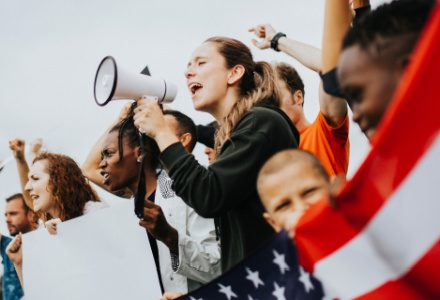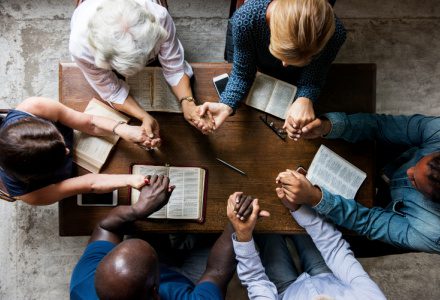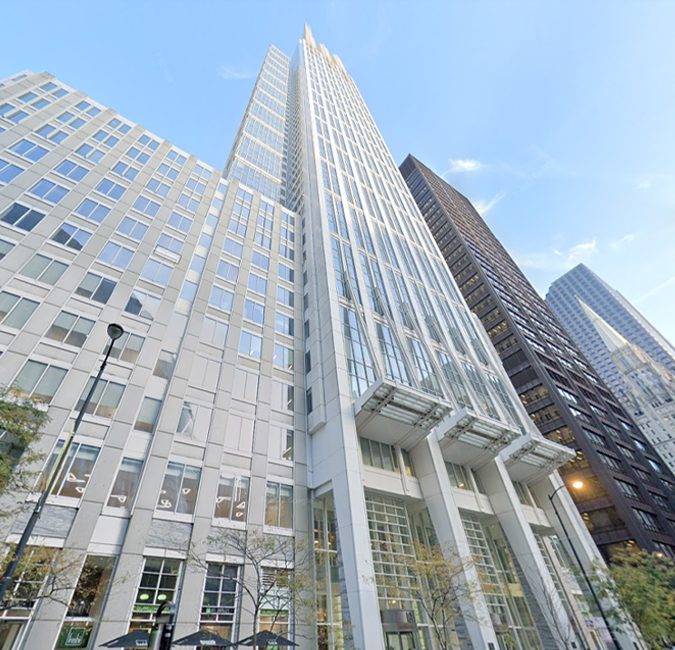The New Orthodoxy: Compelling The Use of Pronouns
Public accommodation/antidiscrimination laws proliferated after the civil rights victories in the 1960s. These laws were designed to prevent businesses from refusing to serve individuals on the basis of race, ethnicity and national origin. Recently, some states, counties and cities have expanded the scope of these antidiscrimination laws to include gender identity. As expanded, these laws prevent businesses from “discriminating” against individuals on the basis of their gender identity. Prohibiting a business from refusing to serve a person because of their gender identity is not, in the vast majority of cases, going to raise constitutional concerns. These expanded laws, however, are going much further than this, which is putting them into conflict with the First Amendment. The reason for this is straightforward: gender theory demands that individuals speak in certain ways so as not to offend individuals with respect to their gender identity.
The gender identity issue is raising First Amendment issues in a way that the protection of racial and ethnic minorities did not. Gender identity activists claim that anything short of completely affirming a person’s gender identity choices, or criticizing modern gender theory, constitutes discrimination and bigotry. For example, many gender identity activists claim that using the wrong pronoun when addressing someone is akin to violence. Claiming that there are only two sexes, male and female, and that these categories are immutable, is met with the accusation that you are trying to “eliminate” transgender individuals, and, hence, discriminating against them. In these situations, the activists are focused on what people say, rather than whether a business is willing to provide goods or services to someone on the basis of their claimed gender identity. While the First Amendment protects the right of gender activists to promote their views, some state governments and municipalities are using their antidiscrimination laws to force businesses to refrain from saying anything contrary to modern gender theory.
As an example, the City of Jacksonville, Florida recently expanded its Human Rights Ordinance (“Ordinance”) to include gender identity as a protected category. A Catholic bookstore (“Queen of Angels Catholic Bookstore”) is challenging the Ordinance on the ground that its provisions concerning gender identity violate the bookstore’s right to freedom of speech and the Free Exercise of Religion under the First Amendment. The statements in the Bookstore’s complaint are only allegations at this point, and Jacksonville has a right to defend itself in Court. That said, the terms of the Ordinance are extremely broad, on their face, and raise serious First Amendment concerns.
The Ordinance defines gender identity as “the gender-related identity, appearance, or expression of a person.” The Ordinance then goes on to prohibit discrimination in three different ways. First, it makes it unlawful for a business to “refuse, withhold or deny to a person any services, access, advantages, goods, facilities or privileges of a public accommodation.” Second, a business may not “publish, circulate, issue, display, post or mail a communication, notice or advertisement to the effect that accommodations, services, goods, advantages, facilities are denied to a person” due to their gender identity. Finally, the Ordinance broadly makes it unlawful for a business to “publish, circulate, issue, display, post or mail a communication, notice or advertisement to the effect that . . . the patronage of such person is unwelcome, objectionable, or unacceptable” (“Communication Clause”) because of their gender identity.
Whether the Ordinance’s first two clauses violate the First Amendment turns on how broadly they are interpreted. For example, the first clause does not specifically target speech. These laws, however, are typically interpreted broadly, and Jacksonville could interpret words such as “refuse, withhold or deny,” “access” and “advantage” to include a failure to use the pronouns requested by a transgender individual. Many gender identity activists and government officials claim that a failure to use the correct pronoun constitutes violence. Under this view, it is not unreasonable to believe that Jacksonville could interpret the first clause to reach various types of speech, including a failure to use a preferred pronoun.
The second clause directly targets communications and the issue becomes what it means to deny a person services, goods, advantages, or facilities. The second clause would cover, for example, a statement by a business that it will refuse to do business with any transgender individual. The second clause, however, is subject to a much broader interpretation. Given that gender identity activists typically view anything short of complete affirmation as violence, any statement that affirms a traditional view of gender and sex could easily be interpreted by Jacksonville as constituting a refusal to serve. Courts will need to carefully interpret this clause in a manner that does not unconstitutionally infringe upon First Amendment rights.
The Ordinance’s Communication Clause represents a frontal assault on First Amendment rights given its prohibition on speech that conveys a message that is “unwelcome, objectionable or unacceptable.” This prohibition is extremely broad and goes well beyond a refusal to sell a good or service to an individual due to their gender identity. For example, given that many gender identity activists view using the wrong pronoun as violence, a business’ employees would have to use a customer’s preferred pronouns or be accused of making the business establishment “unwelcoming,” or conveying a message that the transgender individual is objectionable or unacceptable.
At its core, the Communication Clause forces people to speak in a certain manner, which raises significant First Amendment concerns. Many people do not agree with the claim that a person can have a gender separate from their biological sex. Some hold this position for secular reasons, while others base their position on their religious beliefs. Compelling someone to say something they don’t believe is extremely intrusive and imposes a significant burden on people who don’t agree with the state mandated message.
Compelled speech is generally prohibited under the First Amendment. Free speech and free expression cannot exist if the government can force you to say something you do not believe. Compelled speech forces an individual to violate his or her conscience at the government’s direction in order to create the false appearance of agreement and unanimity. If the government can force individuals to say something they do not believe, First Amendment rights essentially disappear. The Communication Clause raises First Amendment concerns because it forces people to say things they do not believe in a state mandated effort to prevent hurt feelings. It is almost impossible, however, to take a position on a controversial topic without offending someone. The First Amendment would become a hollow right if its protections were lost whenever speech hurt someone’s feelings or made them feel unwelcome.
Nor is the Ordinance’s Communication clause necessary. Any denial of service is already addressed in the Ordinance’s first two clauses. The existence of the first two clauses strongly suggests that the Communication Clause is designed to restrict speech that goes well beyond a denial of service.
The Communication Clause also restricts businesses from expressing certain viewpoints while allowing other businesses to express competing viewpoints. For example, under the Communication Clause, a business that posts statements on its website, in its store or in its advertisements that disagree with modern gender theory could face an investigation, fines and other enforcement actions. A business can, however, make statements under the Ordinance that support modern gender ideology and not face any punitive actions under the Communication Clause. For example, a business claiming that only two sexes exist could conceivably be accused of violating the Ordinance, because some customers might view this as unwelcoming. Another business, however, could advertise its belief in the existence of many different genders and face no consequences. Neither of these statements prohibit anyone from purchasing goods or services from these businesses, nor do they say that the business will refuse to sell goods or services to someone due to their gender identity. While some people may find either statement offensive and refuse to shop at the relevant business, this is a decision reached by the individual, not the business. The fact that these two statements are treated differently shows that the Communication Clause is a viewpoint-based restraint. Viewpoint-based restraints are treated harshly under the First Amendment.
Finally, the Communication Clause provides little guidance as to what communications are prohibited. A business cannot know what statements are considered “unwelcoming” or “objectionable.” Is a sign saying “all men and women are welcome” “unwelcoming” to non-binary people? What was considered perfectly appropriate even two years ago, is now considered by some as hateful and worthy of condemnation. The lack of clarity on the definition of these terms has a number of harmful consequences. First, the Ordinance will chill much protected speech for the very reason that its boundaries are not clearly delineated. Second, the lack of clarity gives enforcement agencies the ability to harass businesses for a lack of orthodoxy, rather than any specific refusal to provide goods and services.
The Queen of Angels Catholic Bookstore is also challenging the Ordinance on the ground that it violates the Bookstore’s right to the free exercise of its religion. The Bookstore promotes the Catholic faith, and has oriented its entire business to that end. The Bookstore alleges that it “views itself as an extension of the [Catholic] church, and therefore requires its employees to conduct themselves with hospitality and reverence while at work.” Consistent with its faith, the Bookstore believes that God made only two sexes and that “biological sex is immutable.” The Bookstore wants to express its faith in a statement concerning the use of pronouns and by making statements on the Bookstore’s blog.
The Bookstore claims that the Ordinance interferes with the free exercise of its faith, because it cannot express Catholic views on sexuality. According to the Bookstore, the law is not neutral in its application. The Ordinance does not prevent secular businesses from promoting modern gender theory. The Ordinance discriminates against Catholic beliefs concerning gender because it prohibits the Bookstore from professing its faith on these issues, while not preventing secular businesses from promoting gender theory. The court hearing the Bookstore’s case will have to determine if this difference in treatment is enough to show that the law is not neutral in its application and, thus, violates the Free Exercise Clause of the First Amendment.
The Ordinance is another example of how antidiscrimination laws can be used by state and local governments to restrain speech, compel speech and discriminate against religious beliefs. Antidiscrimination laws play a vital role in combatting racism and other forms of discrimination, but the fight against discrimination cannot become a pretext for silencing viewpoints that a state or local government does not like.
At the Law Office of George M. Sanders, we are dedicated to upholding your civil rights and protecting the principles that form the foundation of our democracy. If you believe your right to freedom of speech or freedom of religion has been violated or need assistance with another civil rights matter, contact us today.
Previous Post
The Assault on Women’s Only Spaces By Expanded Anti-Discrimination Laws
For some time, women have enjoyed a wide range of places that are deemed women only spaces. Such places range from locker rooms and...
NEXT Post
Compelled Speech Takes A Hit At The Supreme Court
When we hear about efforts to prevent free speech, we typically think of censorship or the silencing of disfavored viewpoints. Over the last few...







